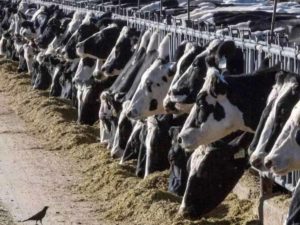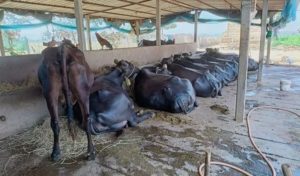Glanbia has announced it is going to set new supply limits for milk delivered during the peak milk months of April, May and June, because available milk processing capacity is limited.
A milk price penalty of 30% of the prevailing milk price will be applied to milk delivered above the allowed limit for each farmer.
Last Thursday, the board of Glanbia signed off on new rules for limiting peak milk for three years – 2022, 2023 and 2024.
Glanbia’s peak milk supply penalty will be introduced to send a clear signal to its suppliers that more milk is not wanted during this peak period. It says the new rules are a temporary measure.
During those three years, starting in 2022, Glanbia producers will only be allowed increase their milk volumes for the three months of April to June by between 2.5% and 5% of a reference year.
The farmers will be allowed to choose their reference year from 2018, 2019 and 2020.
Smaller farmers
Smaller producers – those producing less than 550,000 litres annually – will be given slightly more capacity to supply more milk over those three months than bigger herds.
Smaller farmers will be allowed grow their volumes by 5% per year, compared with 2.5% growth allowed to farmers supplying more than 550,000 litres annually.
Any milk supplied over and above this reference volume will be discounted 30% in milk price.
The pot of money created by this peak penalty will be captured by Glanbia and returned to milk produced in December, January and February.
Milk supplied in December will get a 4c/l bonus, January milk will get a 4c/l bonus, while February milk will get a 3c/l bonus.
New retirement scheme
Glanbia has also announced that it is introducing a new retirement scheme which will pay farmers who retire from milking a monthly payment for a five-year period starting in 2022.
The amount a farmer gets paid will vary depending on their historic milk volume, but under this scheme, a farmer could qualify for an annual payment of up to €15,000 per year.
Essentially, this is a sweetener to the retiring farmer to hang up the clusters sooner rather than later, allowing that pot of milk and processing capacity back into the Glanbia milk pool earlier than the farmer was planning.










